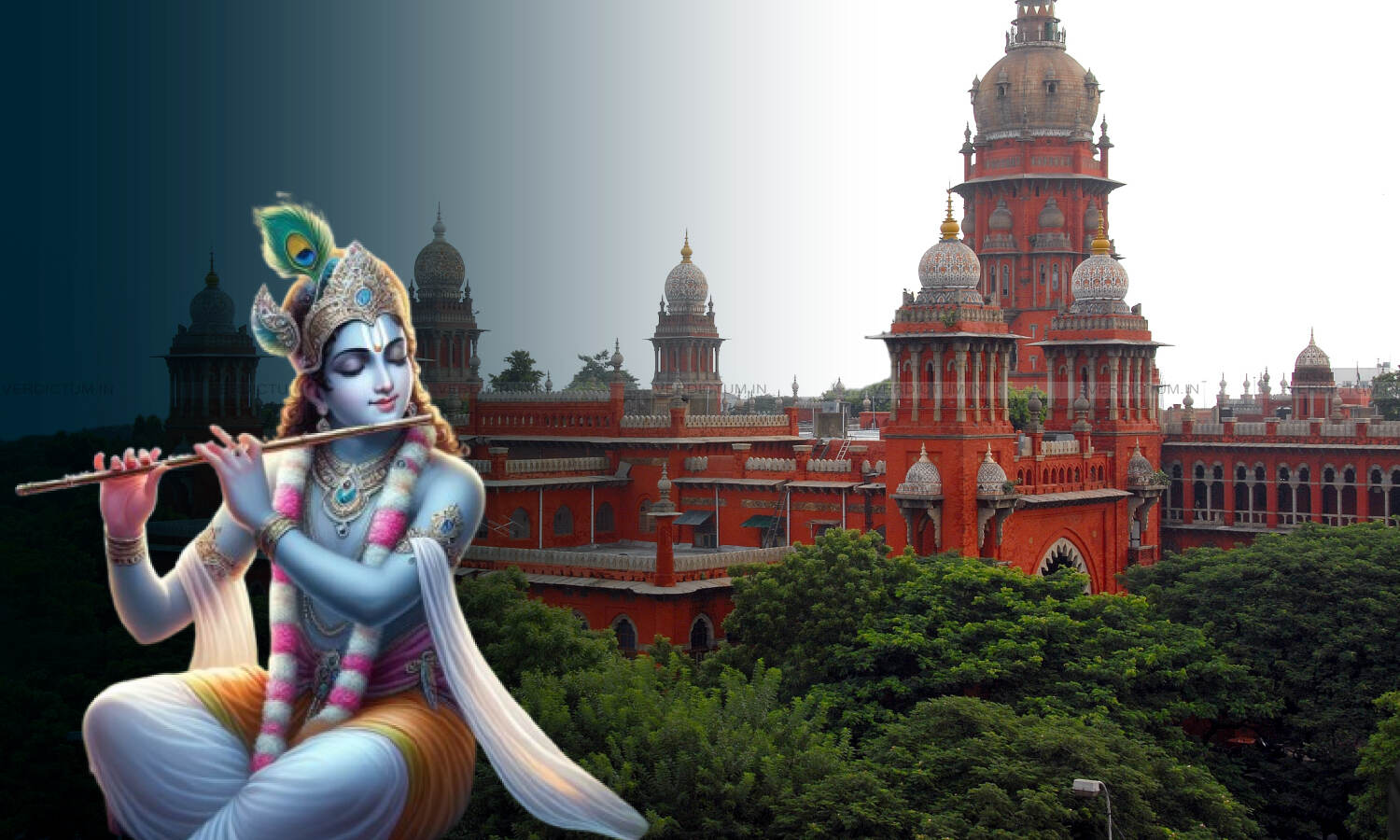Disrespecting Hindu Gods Cannot Be Justified; Freedom Of Expression Should Not Translate Into Hurting Religious Feelings: Madras High Court

The Madras High Court has come down heavily on the Tamil Nadu Police for what it described as a “mechanical” and casual closure of a criminal case concerning a Facebook post that used vulgar language alongside an image of Lord Krishna stealing clothes from the gopis (female devotees).
A Bench of Justice K Murali Shankar held, “Depicting Hindu Gods in a disrespectful manner, intentionally hurting the sentiments of millions, cannot be justified. Such actions have the potential to spark enmity, religious outrage, social disorder, and undermine communal harmony. Given the deep-rooted respect for religious symbols and deities, disrespect can lead to social unrest and hurt a large section of society. Therefore, it is crucial to approach such depictions with sensitivity. The Government must ensure that freedom of expression does not translate into hurting religious feelings.”
Advocate S Saravanan appeared for the Petitioner and Advocate M Asha appeared for the Respondent.
Background
The controversy arose after a Facebook post appeared on an account. The post featured two captions in Tamil, including a remark that Krishna jayanti was essentially the celebration of “a man who stole the clothes of bathing women.” The complainant alleged that the post was deliberately aimed at defaming Hindu gods and tarnishing the image of Hindu women, and that it could potentially incite law and order issues or enmity between religious groups.
A criminal case was registered on his complaint. However, in February 2025, the police filed a negative final report before the trial court, stating that their request to Meta (which owns Facebook) for the user’s details had failed. Meta had responded that such data could only be provided upon receipt of a request through the Mutual Legal Assistance Treaty (MLAT) or a letter rogatory. The police classified the case as “UN” (undetected) and, in March 2025, the trial court accepted this report, closing the matter while giving the complainant liberty to pursue a private complaint.
Finding
Aggrieved by this closure, the complainant moved the High Court in revision. The Court criticized the police for their lack of diligence, noting that the investigation had been prematurely abandoned despite the seriousness of the allegations. It added, “Despite the seriousness of the allegations, the respondent police handled the case casually, halting the investigation and closing it as ‘undetected’. Given these circumstances, this Court finds it necessary to direct the respondent to continue and complete the investigation within a stipulated period.”
The Court ordered the police to resume the probe and submit a final report within three months. It found that the investigating officer had done little beyond sending a request to Facebook authorities, ignoring other avenues of inquiry. The Bench pointed out that the Facebook page in question contained personal information that could have been verified to trace the user.
The Court also addressed the context of the image used in the post. He noted that the episode from Hindu mythology—where Lord Krishna hides the clothes of the gopis—is traditionally understood as an allegorical tale with multiple interpretations, including as a test of whether the gopis’ devotion transcended worldly attachments.
“This story highlights the importance of spiritual pursuit and detachment,” the Court said.
However, the Court clarified that he was not undertaking a theological analysis but emphasised that the Facebook post had clearly exceeded acceptable limits of free speech.
Cause Title: P Paramasivan v. Inspector of Police
